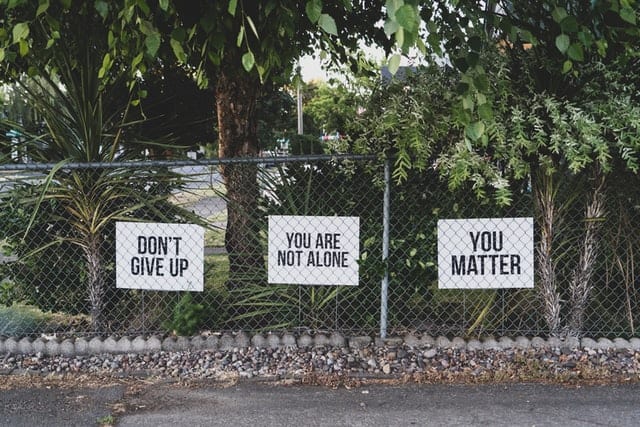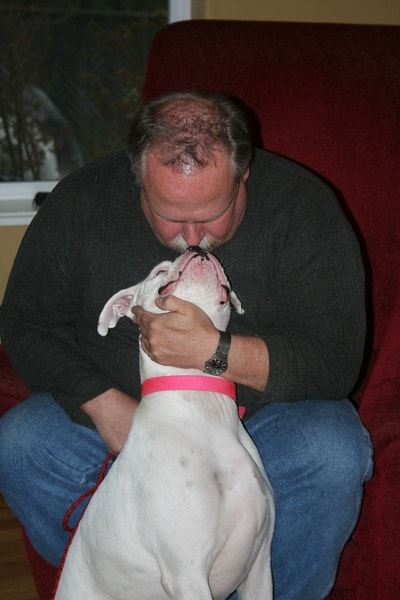On a certain Sunday in 2011, I, like so many Americans, lingered in the sorrow of the tenth anniversary of the 9/11 Attacks. The news coverage ran all day. Four days later, after having watched video of ash-covered heroes and planes flying into the Twin Towers way too many times, I was wearing a pretty heavy grief hangover, filled with empathy for the many who’d lost loved ones, for the children without parents, for the trauma and injuries that still reverberated for survivors and first-responders.
On that next Thursday, still reeling, I received a call from my brother’s boss that he’d not arrived at work that morning and wasn’t answering his phone. He was worried and I was John’s emergency contact. I’d spoken to John on the phone on Wednesday afternoon, just twenty-four hours before. He was brewing beer for Thanksgiving and wondered what flavors I thought folks would like better. Hints of cranberry? Maybe sage? He’d ended our call as he always did. “Love you a bunch.”
John had never missed a day of work without calling in. But he had diabetes, so I was terrified he’d suffered insulin shock or some other diabetes-related malady. I had visions of him on his bathroom floor after passing out, hitting his head on the sink, and lying there bleeding. His home in Reno was ninety minutes from mine. His friend Jimmy offered to drive out to John’s house. Jimmy called me when he found John’s truck in the drive and the doors locked. I listened as he kicked in the locked bedroom door. I listened to Jimmy’s sudden, ragged exhale. And I knew.
But I didn’t.
I knew with that exhale that John was dead. I did not know that he’d put a bullet through his own heart, that he’d left a manhole-sized crater in his mattress. I had no idea he’d become the second of three men in my family to die at his own hand.
Twenty years have passed since 9/11 and the anniversary remembrances play out on every news station—again. Survivors and witnesses, first responders and civil servants share remembrances, their shared grief, their memories of loved ones lost.
For a decade I’ve replayed every detail of my family’s loss, every utterance of my last conversation with John, scouring it for hints of what was to come, for answers to the big “why”. There are none. Suicide leaves behind a puzzle that will be forever missing some of its pieces.
John’s funeral was packed, well over a hundred people. A lot of men, young and old. I fought back nausea to offer a eulogy. Rather than celebrate my brother’s life, I turned to the men and boys in the room and asked them: How many of you would have helped John with anything he needed? How many of you would have been there to see him through a tough time? How many of you wish you’d known he was in pain so that you could offer to help?
Every hand went up.
“It’s too late for John to know that,” I said. “But look around you. You men, you have a hard time saying you’re in pain. You have a hard time asking for help. John hid behind his funny guy persona. He made you laugh when his heart was broken. So when yours is broken, remember all of these dudes around you, and all of the women sitting next to them. You have people who would do anything to help you if you need it.”
Now, as the twentieth anniversary of 9/11 is upon us and the tenth anniversary of John’s suicide follows right behind, I am again in the company of many mourners. Their loss is public, communal. Mine is private. There will be no CNN special tribute for the suicide losses that my family sustained. And yet, I listen to tributes and somehow feel less alone. Love and loss form the connective tissue that ties us humans to one another.
I’ve always thought it sickly ironic that John took his life in September—it being National Suicide Prevention Month. Now that so much time has passed, I’m grateful that it did. It lets me take this opportunity to remind you that whatever pain you’re in, there’s help to be found and joy to be found on the other side of it.
If you’re suffering, maybe you can get help from your family? Maybe not. Maybe you have just one friend who will listen and care. Don’t stop yourself because you don’t want to burden someone; the burden of grieving your suicide is much worse.
You can trust me on that one.
A skilled therapist can make a huge difference. If the first one you try is a dud or a bad fit, find another. Therapists are just like mechanics and teachers and doctors and drywall hangers; some are hacks, some are mediocre, and some are stellar artists of their craft. You can even see a therapist through your computer these days. You may need to see your doc for medication to help you through—no shame in that. Some need insulin; others need antidepressants. Same-same. Maybe strangers can help: a support group, or a chat room. Seek the comfort of nature, the affections of a pet, the companionship of stories in books or films. There are a thousand ways not to be alone if you can’t trust yourself to be alone.
Twenty years after 9/11 and the tributes have begun anew. The tenth anniversary of my brother’s death looms. I’ll do what I have done each year; I’ll gather rose petals, go to somewhere beautiful, and toss them into the breeze to say good-bye, again. I sometimes amuse myself by envisioning John now, speaking from whatever is on the other side of this life. I’m pretty sure what he’d say is, Well, that was a dumbass move on my part.
Yeah, that’s the kind of thing he’d say.
The pain of the loss of my brother did not get any smaller in ten years. But my life has gotten bigger around it. I’ve written some books and launched a podcast that celebrates determination—people that might have quit their endeavors, their dreams, their lives…but didn’t. I guess I’m still searching for why some people make it, and some don’t.
I didn’t have the chance to help change John’s choice, though I can hope that I might inspire just one other person to make a different one.
Suicide Prevention Month, YEA!
Yeah, I’ll say it. I’ll say the “yea” because perhaps it gives me the chance to tell you that you matter. That you may be flawed or feel broken, but that is part of being human and we are all flawed and broken. That you are precious and utterly unique, and that this world would not be better off without you.
You are not alone. If you feel you are in danger of harming yourself, please reach out. The National Suicide Prevention Lifeline 1-800-273-8255 is available 24/7/365
Betsy Graziani Fasbinder is a licensed therapist and host of the podcast, The Morning Glory Project: Stories of Determination. She first shared the story of her brother’s death in the anthology, Shades of Blue: Writers on Suicide, Depression, and the Blues


